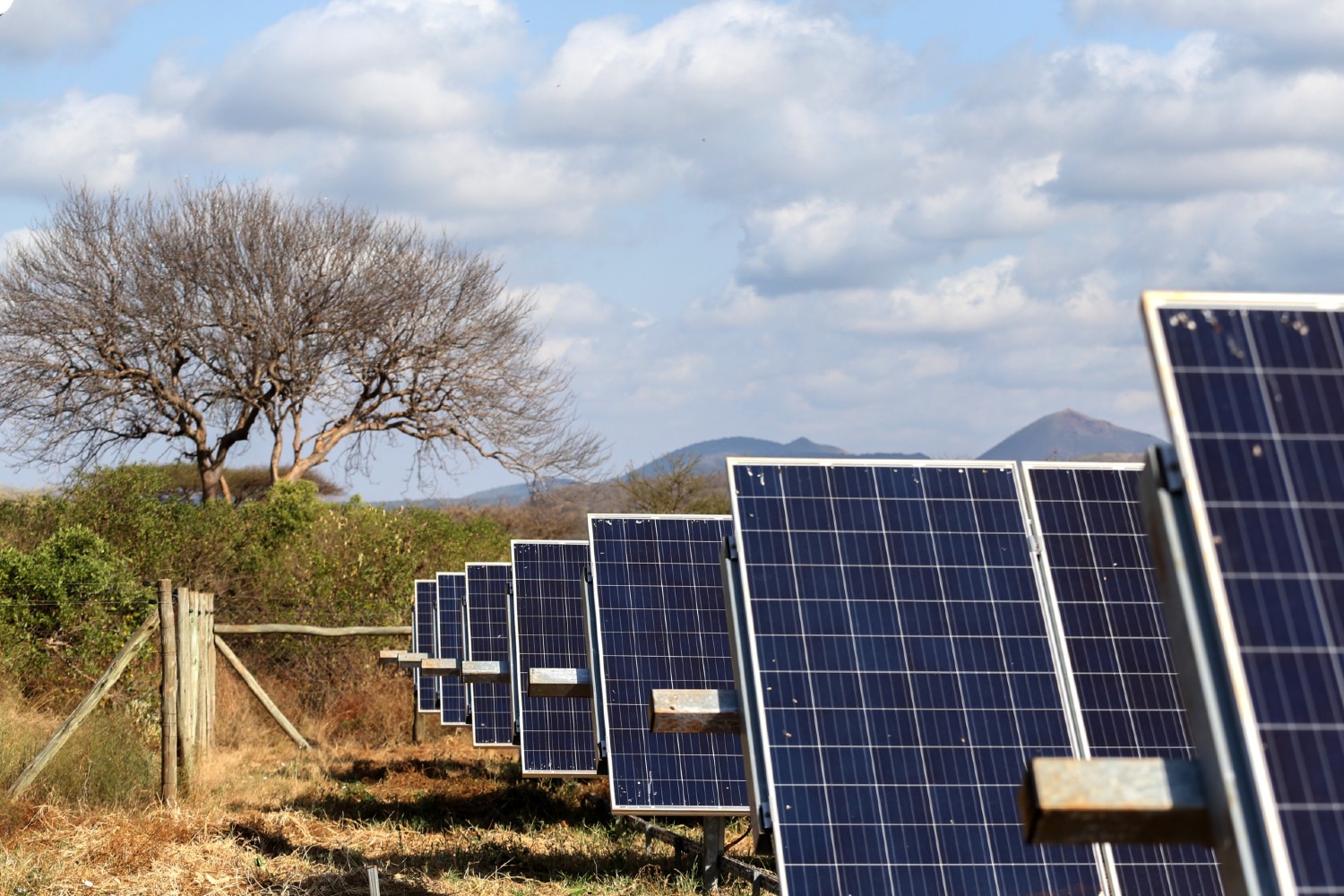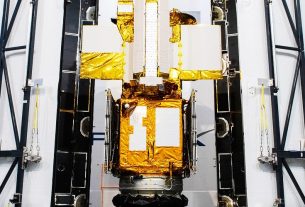Further information
The projects
Stability of the South African power grid: a data-driven statistical physics-based approach
- Queen Mary University of London
- International Stellenbosch University
- University of the Free State
South Africa’s reliance on coal-fired power leaves millions without reliable electricity, with frequent load shedding disrupting society and the economy. This project uses advanced modelling and data analysis to:
- improve grid stability
- develop affordable, zero-emission alternatives like wind, solar, and battery storage
- reduce the country’s carbon footprint
Sharing the sky: using a global robotic telescope network for capacity and research community building in East Africa
- University of St Andrews
- Mbarara University of Science and Technology
- Open University of Tanzania
- Technical University of Kenya
- University of Rwanda
Supporting astronomy communities in Kenya, Tanzania, Uganda, and Rwanda through observational projects with the Las Cumbres Observatory’s global telescope network.
By enhancing access to world class research facilities, and fostering inter-African collaboration, the project aims to build lasting expertise and independent leadership in observational astronomy.
Potential of sub-seasonal operational weather and climate information for building energy resilience in Kenya (POWER-Kenya)
- University of Reading
- Newcastle University
- University of Leeds
- University of Nairobi
Kenya Vision 2030 targets universal energy access and 100% renewables, but over half the population still lacks sustainable energy. With nearly 50% of electricity from weather-sensitive sources, effective planning is hindered by limited climate forecasting. Closing this gap is crucial for optimising energy generation, storage, and market decisions.
Bridging the efficiency gap of metal vs carbon back electrode perovskite solar cells to support the clean energy growth transition in South Africa
- University of St Andrews
- University of Pretoria
The Sustainable Africa Scenario 2030 prioritises affordable energy for all, with solar mini-grids as the key solution for rural electrification. Despite Africa’s vast solar potential, it holds just 1% of global installed PV capacity, requiring greater investment and capacity building.
This project aims to develop cost-effective, high-efficiency printable solar modules by combining UK expertise in perovskite solar cells with African strengths in defect analysis.
SAPPHIRE: Supra-African Physics Partnership for health innovation and radiotherapy expansion
- University of Oxford
- Ghana Atomic Energy Commission
- Korle Bu Teaching Hospital
- Steve Biko Hospital
- University of Cambridge
SAPPHIRE is a UK-African partnership working to improve cancer treatment by making radiotherapy machines (M-LINACs) more reliable and suited for low-income countries.
Many African machines suffer frequent breakdowns and there is a shortage of trained medical physicists. Bringing together experts from Africa, the UK, and CERN, the project will focus on fixing key issues, such as faulty beam-shaping systems, to ensure better and more consistent cancer care.
Developing capacity for storm and lightning early warning for the energy sector in Ghana (EW4Energy)
- University of Leeds
- Centre for Ecology & Hydrology
- Ghana Meteorological Agency
- Kwame Nkrumah University of Science and Technology
- University of Cape Coast
EW4Energy will deploy Ghana’s first ground-based lightning detection system, improving storm prediction and early warning capabilities, particularly for the energy sector. By combining new sensor networks with satellite data, the project will enhance understanding of lightning-generating storms in West Africa. It will also:
- build local expertise in atmospheric physics
- support early-career researchers, especially women
- strengthen UK-Ghana research partnerships
Building the foundation for geodetic excellence in Africa through the Africa-UK Physics Partnership
- University of Manchester
- Technical University of Kenya
Geodetic systems are crucial for Africa, providing accurate frameworks for mapping, land management, and disaster monitoring while supporting development and regional integration.
This project will evaluate Africa’s geodetic infrastructure, identifying gaps in equipment, capacity, and expertise. It will strategically plan improvements, building a sustainable, globally aligned system tailored to Africa’s needs.
Frugal innovation for societally-important challenges in Africa (FISICA)
- University of York
- Rwanda Atomic Energy Board
- State University of Zanzibar
- University of Dar es Salaam
- University of Ghana
- University of Pretoria
- University of the Western Cape
- University of Zululand
This project brings together UK and African researchers to develop affordable scientific instruments, including a hyperspectral imager and a gamma-ray spectrometer, for tackling challenges in agriculture, climate change, and energy.
Through workshops in the UK and South Africa, experts will co-create solutions tailored to local needs, fostering interdisciplinary collaboration. The project will not only advance technology but also build research capacity and upskill early-career scientists across Africa.
IKIRERE: innovation and knowledge integration for resilience in East Africa through climate research and education
- University of Leicester
- African Institute for Mathematical Sciences, Rwanda
IKIRERE, a UK-Rwanda-Tanzania partnership, aims to tackle climate change challenges by improving understanding of droughts and heatwaves while building local research capacity.
By addressing data gaps and uncertainties, the project will enhance early-warning systems and climate resilience in East Africa. Alongside scientific research, it will train the next generation of climate physicists, empowering local experts to manage and mitigate future climate risks.
Temperature-sensitive Earth-abundant catalysts for green hydrogen production
- Loughborough University
- Technical University of Kenya
- University of the Witwatersrand
TECHydro aims to enhance the efficiency of alkaline water electrolysis for hydrogen production by developing temperature-sensitive, earth-abundant catalysts.
By exploring cobalt- and nickel-based catalysts, the project seeks to improve cost-effectiveness and integration with renewable energy, crucial for Africa’s growing hydrogen sector.
This UK-South Africa-Kenya collaboration will provide new insights into catalyst behaviour at high temperatures, supporting sustainable hydrogen production in hot climates.
Efficient photoelectrochemical green energy system based on hematite photoanodes heterostructured with selected 2D transitional metal dichalcogenides
- University of Southampton
- Busitema University
- Kyambogo University
- Maseno University
- University of Rwanda
This project enhances photoelectrochemical water-splitting technology to convert solar energy into hydrogen fuel, supporting sustainable energy solutions.
Through UK-Africa collaboration, African researchers will gain access to advanced facilities, training, and expertise, strengthening their technical skills and research capabilities.
This initiative not only advances renewable energy science but also builds local capacity for sustainable hydrogen production.
Compound-semiconductor-enabled renewable energy system for powering critical buildings in Africa
- Cardiff University
- University of Nairobi
This project aims to improve the efficiency and reliability of solar photovoltaic-battery energy storage systems for critical facilities in Africa by leveraging advanced Silicon Carbide semiconductor technology. Enhancing semiconductor performance will:
- reduce energy losses
- improve system reliability
- increase the availability of renewable power for essential services like healthcare
A 1% efficiency gain in solar inverters alone could provide an additional 150 GWh of energy for critical infrastructure.
Simulation-based inference for the Square Kilometre Array and beyond
- Imperial College London
- South African Radio Astronomy Observatory (SARAO)
- University of Witwatersrand
The Square Kilometre Array (SKA) produces vast amounts of data, but interference from cell phones, satellites and radio signals is a major challenge. To tackle this, advanced computing and artificial intelligence (AI) techniques are being developed while also building scientific expertise in Africa.
The project includes training two early-career SKA researchers (one in South Africa, one at Imperial College London) and a summer school for 30 to 40 African students in statistics and AI.
Research focuses on simulation, emulation, data compression, and statistical analysis, skills that are also useful in climate science, disease tracking, and manufacturing.



